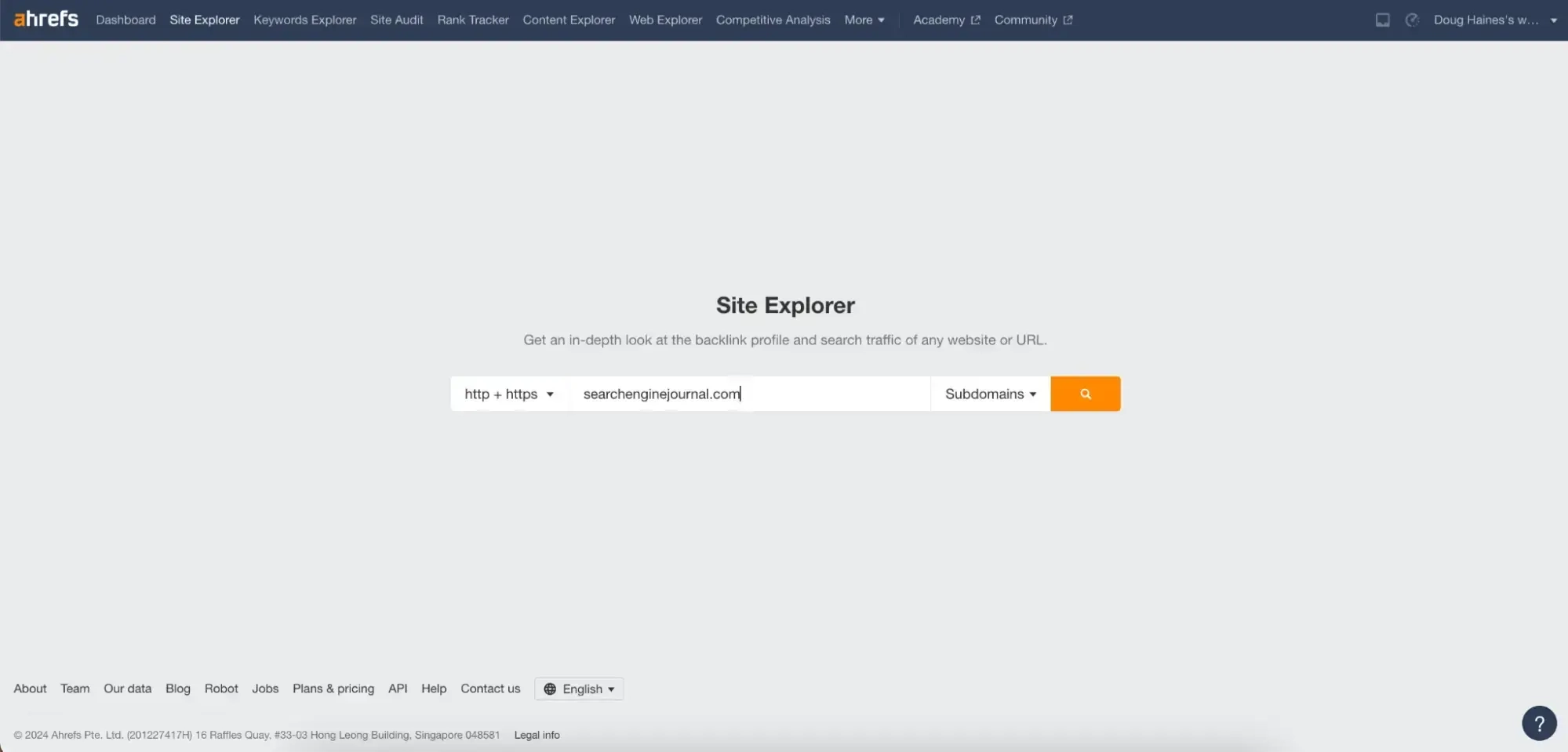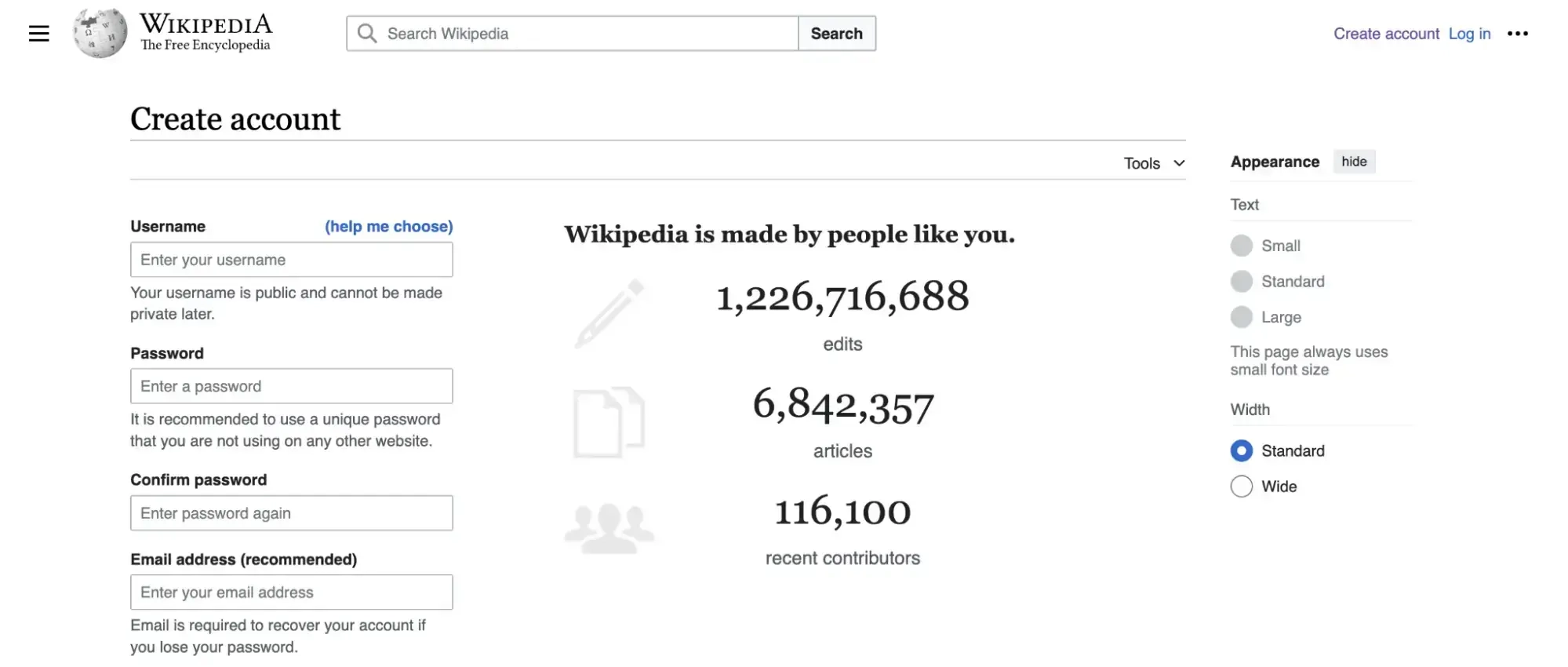
How To Get It Right: Link Building For Healthcare Industries
With the global healthcare industry projected to exceed $10 trillion by 2025, standing out from the crowd is more important than ever—especially as more and more users turn to the internet to find health-related information.
Link building—the process of acquiring links from other websites to your own—is an essential part of a comprehensive digital marketing strategy.
From industry leaders to small clinics, implementing an effective link-building strategy is key to achieving and maintaining a top Google ranking.
Here’s why you need a solid link-building strategy to ensure your healthcare website is easy to find on search engine results pages (SERPs):
⚡ Every minute, there are 70,000 healthcare-related searches.
⚡77% of patients use Google search before picking a hospital.
⚡90% of users pick new doctors based on online reviews.
⚡71% of patients won't book an appointment if they can’t find relevant information on your website.
Given these statistics, a healthcare link-building strategy is one of the most important SEO tools you can have.
In this blog, we explore how to navigate the complexities of link building for healthcare so you can unlock the full potential of your online presence.
Key Takeaways
Establishing trust with both Google and potential patients is crucial. Link building helps signal that your healthcare website is a reputable source of information.
Gaining backlinks from respected websites helps reinforce your authority within the healthcare industry.
High-quality content attracts reputable backlinks naturally, positioning your healthcare site as a valuable resource.
For providers focusing on local communities, acquiring backlinks from local websites can improve their local search engine visibility.
Link Building for Healthcare Providers: Why Is It So Important?
Link building is the practice of getting backlinks from external websites to your website.
It’s integral for developing a strong online presence, attracting more patients, and achieving success in the competitive healthcare market.
Here’s why link building for healthcare industries is so essential:
🚀 Boost your search engine rankings
The healthcare sector thrives on trust. Patients, caregivers, and medical providers all look for accurate information from reputable sources.
Link building plays a vital role in establishing this trust online—not just with potential patients and other medical providers, but with search engines as well. Earning their trust is what helps your website achieve higher rankings on SERPs.
But how exactly does a website reach the coveted top spot in search engine rankings?
Search engines employ complex algorithms to determine the order of web pages shown for any given query, and link building is a major factor in this process.
🚀 Increase organic traffic
Better visibility on SERPs is directly linked to organic traffic. With the top three organic search results on Google capturing over 68% of all clicks, securing a spot at the top is essential.
For healthcare companies where the competition for visibility can be fierce, a strong link-building strategy ensures that your site not only ranks well, but also attracts more organic traffic.
Increased visibility can translate into more patient inquiries, appointments, and ultimately, a stronger online presence for your healthcare business.
Here’s an example of Canadian physician Peter Attia’s backlink profile over the past five years.
Back in February 2019, he had 2,095 referring domains and 36,339 visits in the month. As his backlink profile grew, so did his organic traffic.
ℹ️ Referring Domain
A referring domain is any external website that links back to your website. It differs from backlinks because multiple backlinks can come from the same site.
Earning backlinks from a wide range of referring domains, especially those with high authority, can enhance your site's performance in SERPs.
This is because search engines use the diversity and authority of referring domains as signals to determine the quality of your website.
By February 2024, his website had over 6,000 referring domains and 80,000 visits:

🚀 Establish website authority
Link-building strategies help you establish and reinforce your authority within the healthcare industry.
Links from respected institutions, medical journals, and professional associations contribute to a stronger domain authority.
This improves your search engine rankings and positions your website as a credible source of information in the eyes of both users and Google.
When your site is seen as an authority, it becomes a go-to resource for both patients seeking healthcare information and other professionals looking for expert insights, further enhancing your online reputation.
Using the example of Peter Attia again, you can see that as his backlink profile and organic traffic grew, so did his domain rating (from 62 in 2019 to 73 in 2024).
The higher your domain rating, the more credible search engines perceive your website to be:

🚀 Enhance user experience
A comprehensive internal link-building strategy improves the user experience on your site.
By linking to relevant content within your site, you provide users with additional valuable information and resources.
For example, let's say you have a blog focused on nutrition. In a recent article about the benefits of a plant-based diet, you link to a previous article that one of your nutritionists wrote about the top ten plant-based protein sources.
This internal link not only offers your readers more depth on a related topic, but also keeps them engaged on your site longer.
Research shows that 64% of patients book appointments directly on a website, so developing a positive user experience and providing enough information are critical for converting visitors into patients.
4 Quality Metrics to Keep in Mind When Link Building
Not all links are viewed the same way by search engines. Assessing link quality involves a careful examination of various metrics.
By prioritizing high-quality links that score well across key metrics, you can ensure your link-building efforts positively contribute to your overall digital marketing strategy.
Here are key metrics to keep in mind when assessing the quality of a link:
1. Domain authority (DA) and domain rating (DR)
Domain authority (DA) and domain rating (DR) are two critical metrics for measuring a domain's overall strength and trustworthiness.
You’ll want to target websites with high DA and DR scores for your link-building efforts.
DA, a score developed by Moz, ranges from 0 to 100 and evaluates a domain's likelihood to rank on search engine results pages (SERPs).
Here’s an example of Healthline’s DA score on Moz:

Similarly, DR, provided by Ahrefs, also ranges from 0 to 100 and focuses on the strength of a domain's backlink profile. Here’s what Mayo Clinic’s DR score looks like on Ahrefs:

High DA and DR scores generally indicate that a backlink from such a domain can positively impact your site's SEO performance.
2. Trust flow and citation flow
Trust flow (TF) and citation flow (CF) from Majestic are widely regarded as gold standard metrics by many SEO professionals for evaluating backlink quality.
Trust flow measures the trustworthiness of a site based on the quality of backlinks pointing to it, while citation flow assesses the influence of a site by counting the number of links pointing to it. A high TF relative to CF indicates that a site has high-quality backlinks.
When developing your healthcare link-building strategy, aim for links that have a high TF and a balanced TF/CF ratio.
3. Referring domains vs. referring pages
Having a backlink portfolio with a variety of high-quality links from diverse domains is more beneficial to your link-building efforts than having numerous links from the same domain.
This diversity signals to search engines that multiple independent sources consider your content valuable, which can boost your site's authority and ranking.
In addition, focusing on increasing the number of unique referring domains can prevent search engine algorithms from giving you a penalty for link spamming.
💡Link Spamming
Link spamming is the practice of creating a large volume of links that point to a website in an attempt to artificially inflate the site's Google rankings.
It can involve posting irrelevant links in the comments sections of blogs, spamming forums, or using link farms that have no purpose except to link to one another.
Search engines have become sophisticated in their ability to detect sites that engage in link spamming, and penalties can range from a drop in rankings to being completely removed from SERPs.
4. Page authority (PA) and URL rating (UR)
Page authority (PA) and URL rating (UR) measure the strength and quality of individual pages rather than entire domains.
PA, another metric from Moz, and UR from Ahrefs, both range from 0 to 100, with higher scores indicating pages that are more likely to rank well in SERPs.
Links from pages with high PA and UR scores are particularly valuable, as they pass more "link juice" to your site.
💡Understanding Link Juice
The concept of "link juice" refers to the value and authority that one webpage passes on to another through a hyperlink.
You can consider it a vote of confidence in your website from another website.
The more authoritative the linking site, the more valuable the link juice. A backlink from a highly respected and trusted site carries more weight than a link from a lesser-known blog.
Managing link quality metrics such as DA, TF, CF, and PA can get tricky. If you're struggling to interpret and apply these metrics effectively, contact us for expert help.
How to Get Started with Link Building for Healthcare Services
Here are some tried-and-tested link-building strategies for healthcare companies and practitioners:
🚀 Audit and optimize your website
All link-building strategies should start with your own website. Ultimately, the goal of link building is to improve your search engine rankings and drive more organic traffic to your site.
So, before you focus on acquiring backlinks, you should ensure your website is optimized and ready to convert incoming traffic into leads, sales, or engagement.
Use tools like Google Analytics, SEMrush, or Ahrefs to identify technical issues, keywords, content gaps, and user experience improvements.
🚀 Create high-quality content
Even the most well-thought-out link-building strategy will fail if your content is poor.
Quality content is the reason reputable websites will link to you, so take the time to create informative and engaging content for your audience.
For example, the blog The Human Microbiome: How It Works + a Diet for Gut Health by Dr. Axe has 712 backlinks from 173 linking websites, including a backlink from HuffPost.com—one of the top 500 websites in the U.S. by monthly visits.
Not only does the blog provide in-depth information on the human microbiome, but it also includes infographics that make it more attractive for users to link to and share:

Here’s how to start creating valuable, link-worthy content:
✅ Understand your audience: Know who you’re writing for and what problems they have. Does your healthcare practice specialize in family medicine or physiotherapy? Knowing who your target audience is helps you tailor your tone, content, and complexity of information to the right demographic.
✅ Use relevant keywords: Conduct keyword research to find what your target audience is searching for. Incorporate these keywords into your content to improve its visibility and searchability.
✅ Create authoritative content: Produce content that covers topics thoroughly, offering more value than what's currently available online. This could mean including detailed guides, how-to articles, in-depth research studies, or expert opinions.
✅ Use various formats: Include video content, infographics, podcasts, and interactive tools alongside written posts. Different formats attract different types of backlinks and appeal to a broader audience.
Creating great content means having highly skilled researchers, copywriters, and designers on your team. If this seems daunting, get in touch with us to start creating truly link-worthy content.
🚀 Local link building
Local link building focuses on generating backlinks from local websites to improve your visibility in search engine results within your area.
While a healthcare provider with a telehealth practice may want to focus on acquiring backlinks from national websites, a local practitioner may want to focus on a smaller geographic area.
Although local websites will typically have lower domain authority than global websites, this doesn’t mean their links are low quality.
Just the opposite—links from local sources can be incredibly valuable because they signal to Google and other search engines that the healthcare provider is trusted in their area.
Here’s how you can improve your local link building:
✅ Participate in local community events: Sponsoring or participating in local events can lead to mentions and links from event websites and local media.
✅ Collaborate with local health organizations: Partnerships with the local healthcare industry, charities, or wellness events can generate backlinks through shared content, press releases, and event promotions.
✅ Create locally relevant content: Valuable content that addresses local health concerns, seasonal health tips, or guides to local healthcare resources can attract backlinks from local news outlets relevant to your target audience.
✅ List in local directories: Ensuring that your healthcare service is listed in local business directories, especially those dedicated to the medical community, can provide valuable local backlinks.
🚀 Guest post
Guest posting involves writing and publishing articles on other websites, blogs, or online platforms within the healthcare sector or related fields.
It’s a strategic link-building approach that enables healthcare providers to build backlinks, enhance their online presence, and establish themselves as thought leaders in their industry.
Here’s how guest posting can benefit healthcare providers:
✅ Brand awareness: By contributing content to reputable sites, healthcare providers can increase their site visibility to a broader audience, including potential patients, other healthcare professionals, and industry influencers.
✅ Become an authority: Publishing informative, well-researched articles helps establish healthcare providers as authoritative sources of information.
✅ Gain backlinks: Guest posting on authoritative sites provides high-quality backlinks to the healthcare provider’s website.
✅ Build relationships: Collaborating with other websites can open doors to professional networking opportunities, leading to more guest posting invitations, collaborations, and even referrals.
For example, the occupational therapist Lis Bahr, OTD, MS wrote a guest blog entitled 6 Ways To Reduce Low Back Pain If You Spend A Lot Of Time Sitting on MindBodyGreen, a popular health website with a DR of 87.
The post not only provides valuable knowledge, but also aligns with the platform's audience, who are those interested in health, mindfulness, and exercise.

Here’s how to get started with guest posting:
Target relevant platforms
Focus on websites and blogs that are relevant and align with your expertise.
If you’re targeting potential patients, look for blogs centered in health and wellness. If your target audience is other medical professionals, consider medical journals and professional associations' websites.
Provide value
Your guest posts should offer valuable insights, advice, or information that addresses the needs and questions of the audience. Actionable, high-quality content is more likely to be shared and linked to.
Check the submission guidelines
Before reaching out to the website owner, check whether they accept guest posts. If they do, ensure you adhere to the submission guidelines of the host website. These may include content length, formatting preferences, and topics of interest.
Following these guidelines increases the likelihood of your content being accepted and published.
Promote your guest post
Once published, promote your guest post through your social media channels, email newsletters, and other marketing platforms.
This not only drives traffic to the host site, but also benefits you by exposing your content to a wider audience.
🚀 Help A Reporter Out
Help A Reporter Out (HARO) is an online service that connects journalists with sources for their stories.
It's a platform where reporters, bloggers, and writers post queries seeking expert opinions or insights to include in their upcoming articles.
HARO provides healthcare professionals with a unique opportunity for link building. In addition, they can also establish their credibility by sharing their expertise in their field.
Here’s how to get started:
✅ Sign up and select your preferences: Medical professionals can sign up for HARO as a source. During the sign-up process, you can select preferences related to healthcare topics or any areas of expertise you have.
✅ Receive queries: Once registered, you will receive emails with queries from journalists looking for sources. These queries will be related to the preferences you selected, ensuring they match your expertise.
✅ Respond to queries: When you come across a query you can contribute to, respond to the journalist with your insights. It's important to provide comprehensive responses to increase your chances of being selected as a source.
✅ Gain exposure: If your response is selected, the journalist will include your contribution in their article. This often includes a mention of your name, title, and a link back to your website or practice.
🚀 Work with influencers
Healthcare providers partnering with a patient influencer is an innovative way to connect with their audience.
These influencers have built trust among engaged followers by sharing their experiences, insights, and advice related to health and wellness.
Their relatability makes them trusted voices within their communities, providing an opportunity for healthcare services to amplify their message.
Here are some of the benefits of partnering with a patient influencer:
✅ Increased credibility: A survey revealed that 51% of patients trust healthcare patient influencers, compared to 14% who trust lifestyle influencers. This trust can transfer to your medical practice when it's endorsed by a patient influencer.
✅ Enhanced visibility: Patient influencers can introduce your healthcare services to a broader audience. Their personal stories resonate with followers and increase awareness about your brand.
✅ Authentic content: Collaborations with patient influencers can lead to the creation of engaging content that speaks directly to the needs and concerns of potential patients.
When selecting a patient influencer to partner with, focus on alignment and authenticity. Choose influencers whose experiences, audience, and values closely match your healthcare brand's goals.
Micro healthcare influencers, for example, have highly engaged communities and can generate higher engagement rates.
Celebrity patient influencers can significantly boost visibility and bring widespread attention to your healthcare services, but will typically require a much higher fee.
LinkBuilder.io: Your Shortcut to Higher Rankings
In the vast digital landscape, standing out online is more important than ever for healthcare professionals.
An effective link-building strategy has the power to propel your website to the top of Google’s search results—however, achieving link-building success can be complex and time-consuming.
Not only does it require intensive research and planning, but it also requires skilled content creation and time spent developing relationships with other website owners.
That's where LinkBuilder.io comes in. Our expertise simplifies the process, making it easy for you to boost your digital presence and attract inbound links without getting bogged down in the details.
Contact us today to start your journey toward digital success.

